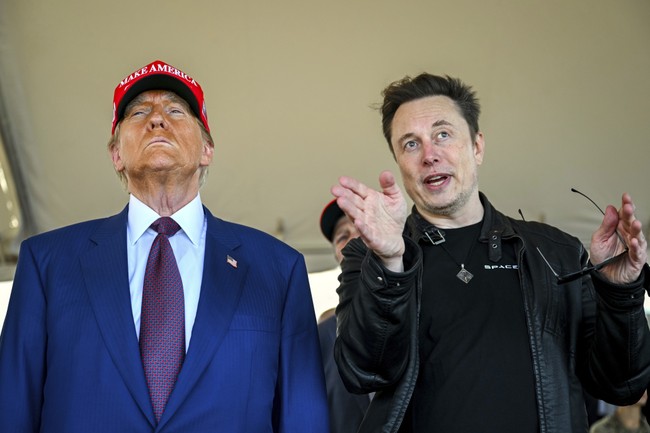
There’s plenty of buzz about the newly established Department of Government Efficiency (DOGE), helmed by X owner Elon Musk and former presidential candidate Vivek Ramaswamy. Indeed, while not an official government agency, the initiative has become the center of a political whirlwind in Washington, D.C.
President-elect Donald Trump has tasked the two men with slashing federal bureaucracy, trimming regulations, and doing away with wasteful spending. It is a worthy endeavor, to be sure. But given that DOGE has only the power to make recommendations that will likely be ignored by Congress, perhaps other tactics might help to reduce the administrative state’s power.
Musk and Ramaswamy have been speaking to lawmakers in D.C. to gin up support for the project, whose mission is to cut $500 billion annually from the federal budget. “Government is too big, it does too many things, and it does almost nothing well. And the taxpayers deserve better,” said House Speaker Mike Johnson (R-LA).
Sen. Joni Ernst (R-IA) said she is “thrilled there is finally an appetite to put my work into action” and that she is “going to partner with the Trump administration and DOGE to put the federal government on a permanent diet.”
Sen. Marsha Blackburn (R-TN) has already started the ball rolling. She recently introduced the “DOGE Act,” saying it will “freeze federal hiring, begin the process to relocate agencies out of the D.C. swamp, and establish a merit-based salary system for the federal workforce.”
However, some have suggested that rolling back the state might not be as simple as it seems. James Broughel from the Competitive Enterprise Institute told CNN that some might be overestimating the ability of DOGE to dismantle federal regulations. “These recent Supreme Court rulings won’t make their life easier in reducing the stock of existing regulations,” he said, referring to the West Virginia v. EPA and Loper Bright Enterprises v. Raimondo rulings. These rulings could actually “work against them,” he said.
In the Loper Bright ruling, the justices overturned long-standing judicial precedent that required courts to give deference to federal agencies’ rulemaking when a law is ambiguous, with the new decision meaning that courts will give more scrutiny to the regulatory moves the executive branch is making. In the West Virginia case, the Supreme Court cut back agencies’ power to address issues of major economic and political significance when Congress hasn’t explicitly given the agencies those authorities.
Still, Musk and Ramaswamy argued in an op-ed that Trump could still pause many of these regulations and order agencies not to enforce them. “DOGE will present this list of regulations to President Trump, who can, by executive action, immediately pause the enforcement of those regulations and initiate the process for review and rescission. This would liberate individuals and businesses from illicit regulations never passed by Congress and stimulate the U.S. economy,” they wrote.
But, even if DOGE faces some hurdles, there are other actions that can be taken at the state level to reduce the burden of excessive regulations. In several states, versions of the Regulations from the Executive In Need of Scrutiny (REINS) Act have been considered as a way to prevent unelected bureaucrats from concocting onerous rules and regulations that carry the force of law. In states like Florida, this type of law has made significant progress toward shrinking the administrative state.
“Florida reduced the number of annual proposed new regulations by 51 percent after adopting a REINS Act, and a study concluded the REINS Act has effectively reduced Florida’s regulatory costs by $2 billion since 2010,” Jonathan Small, president of the Oklahoma Council of Public Affairs, wrote.
Small noted that Oklahoma, despite being governed by Republicans, is the 17th most regulated state with over 142,000 regulations. State lawmakers like Sen. Micheal Bergstrom, who oversees the state’s administrative rules committee, said, “It’s just too much. As chairman, my goal is to read every packet submitted, but I have not been able to do it because of the workload and time constraints.”
This has created a huge problem in the Sooner State, as well as others. As Daniel Dew of the Pacific Legal Foundation pointed out, “Unelected bureaucrats increasingly have been granted the power of both the legislature and the governor, creating and enforcing laws without oversight or constitutional limits. It is time for states to rein in government agencies and hand the keys to power back to elected representatives.”
At this point, it is not clear how much progress DOGE will make. But even if it does not accomplish all its goals, it might help to expose the level of waste and unnecessary regulation in our federal government. It would be a great way to educate the public about what the government is actually doing while claiming to be working for us.
At the state level, however, legislation like the REINS Act is one of several ways to shrink the size of government while giving more power back to the people instead of unelected bureaucrats.
